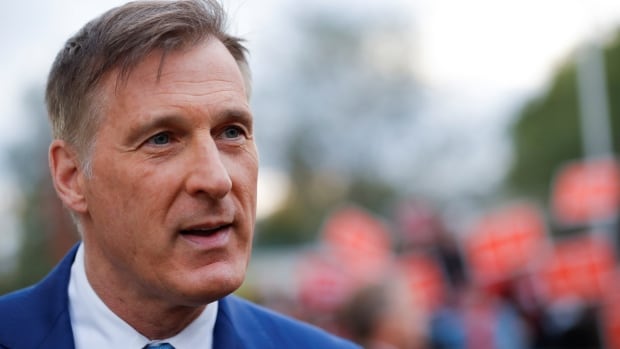After raising just over $2.6 million in donations but failing to win a single seat in the October 2019 election, the People’s Party is paying its founding leader, Maxime Bernier, an annual salary of $104,000 this year.
The party made the disclosure on Friday, as it spelled out the details of its annual filings with Elections Canada.
The filings show the People’s Party raised just under $2 million in 2019 after it was registered as an official party at the end of January. Prior to that registration, the party says Bernier raised $625,000 as an independent candidate, the surplus of which was transferred to People’s Party coffers once the registration went through.
Filings from 150 candidates also show they collectively raised another $379,000 over the course of last fall’s election campaign. The national party spent $604,000 on the election, significantly less than the other parties. The Conservatives spent $28.9 million and the Liberals $26.1 million. The PPC’s closest competitor in election spending countrywide was the Green Party, which spent $2.4 million and secured three seats.
In an email to members and supporters explaining the financial statements, the PPC said that Bernier did not receive a salary from the party while he was drawing his salary as the MP for the Quebec riding of Beauce. Since the beginning of the year, however, Bernier has been paid a salary worth $104,000 annually.
In an email to CBC News, the party said Bernier’s salary was decided by common agreement between three of the party’s directors — Bernier himself, Charles Laflamme and Martin Masse — along with the party’s official agent, Christian Roy.
NDP Leader Jagmeet Singh, who was without a seat in the House of Commons from October 2017 when he became leader to February 2019 when he won a byelection, did not receive a salary from his party.
23,000 donors
The filings show the People’s Party received donations from 23,000 contributors in 2019. Money from those who donated at least $200 — meaning their names and locations must be disclosed — came disproportionately from British Columbia and Alberta, with just eight per cent coming from Bernier’s home province.
While the numbers suggest the People’s Party had a big drop-off in donations in November and December, after Bernier had lost his bid for re-election in Beauce, this decrease does not appear to be significantly different from what was experienced by the parties that succeeded in securing seats in the House of Commons.
The annual statements show the People’s Party ended 2019 in the black, running a surplus of some $375,000. By comparison, the Liberals and Greens respectively ran a $1 million and $880,000 operating deficit. The annual statements of the Conservatives, New Democrats and Greens have yet to be posted.
The People’s Party also ended the year with $462,000 in cash and cash equivalents on the books, compared to $4.4 million for the Liberals and $720,000 for the Greens.
While this suggests the People’s Party is in decent fiscal shape, the money raised by the party pales in comparison to its main rivals.
In 2019, the Conservatives raised $30.9 million, the Liberals $21 million, the NDP $8.1 million and the Greens $6.5 million. Among the major parties, the People’s Party raised more money in 2019 than only the Bloc Québécois, which has 32 seats in the House of Commons but runs candidates in only one province.
Donations have dropped in 2020 as a result of the COVID-19 pandemic and every party in the House, with the exception of the Bloc, has taken advantage of the federal government’s wage subsidy program.
Though the People’s Party reduced its staffing to four full-time employees after the October election and instituted a 20 per cent cut in wages when the pandemic hit, the PPC also said it did not participate in the wage subsidy program.
It says it has hired two new full-time employees and has a cushion to help pay for another campaign if there is a snap election in the fall.
Source:cbc-ca
Source link
Related






























